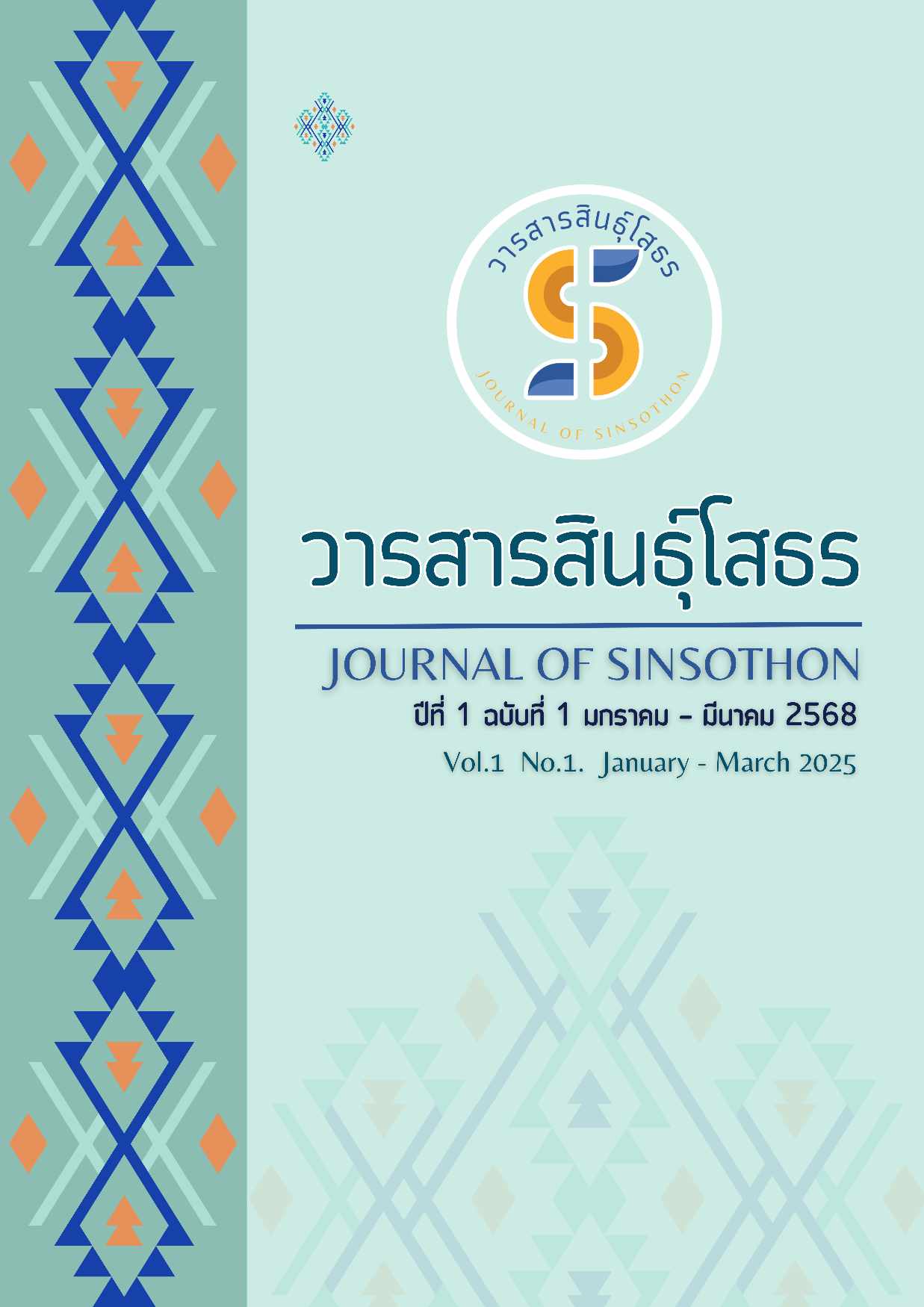The Principle of Ditthadhammikattha Benefits and the Development of the Thai Economy
Keywords:
Ditthadhammikattha benefits, Development, EconomyAbstract
This article aims to explore and study the Dhamma principle in Buddhism under the category of Ditthadhammikattha Benefits and analyze its application in economic development. The research focuses on integrating these principles to have a positive impact on the economic system. The documentary research methodology is applied in this study. The findings indicate that the current economic system in Thailand is volatile, with people at all levels of society being affected by poverty and economic problems. The article presents a way to apply the Ditthadhammikattha Benefits to address these issues. Given the technological advancements in today’s world, the economic system is heavily impacted, with a global network connecting economies. Any event, whether positive or negative, that affects a group within Thai society will also have a ripple effect on the entire system By integrating Buddhist principles into economic development, the study suggests that it can help address the issues facing Thailand's economy. However, it is crucial to present these principles in ways that align with the technological progress of the modern era, ensuring that the approach is effective in both improving the economy and enhancing the quality of life for the Thai people.
References
กรรณิการ์ กาญจนวัฏศร. (2561). เอกสารประกอบการเรียนวิชาการบริหารการพัฒนา : มหาวิทยาลัยราชภัฏนครปฐม.
กิตติกร สุนทรานุรักษ์. (2562). องค์ประกอบของการเลือกเรียนต่อในตลาดอุดมศึกษา : กรณีศึกษาจังหวัดนครศรีธรรมราช. วารสารศึกษาศาสตร์ มสธ, 12(2), 60-70.
ปภาภัทร อัครางกูร. (2562). ทางเลือกนโยบายประชานิยมกับเศรษฐกิจพอเพียง. วารสารพัฒนบริหารศาสตร์, 59(1), 1-15.
พระครูญาณปรีชา. (2561). พระพุทธศาสนากับภูมิปัญญาไทย. วารสารมณีเชษฐาราม วัดจอมมณี, 6(1), 187-205.
พระครูยัติสาทร และ ภาสกร ดอกจันทร์. (2565). การคบบัณฑิตเป็นมงคลอันสูงสุด. วารสารการบริหารและสังคมปริทรรศน์, 5(2), 113-120.
พระพรหมคุณาภรณ์ (ป.อ. ปยุตฺโต). (2546). เครื่องทดสอบพุทธศาสตร์ ฉบับทดลองธรรม (พิมพ์ครั้งที่ 12). กรุงเทพฯ: โรงพิมพ์บริษัทสหธรรมิกจำกัด.
พระมหาพงศ์ทราทิตย์ ก้องเสียง และ หอมหวล บัวระภา. (2558). พุทธศาสนากับเศรษฐกิจ : การศึกษารูปแบบการศึกษาของพระครูบุญชยารวัดไชยศรี ตำบลสาวะถี อำเภอเมืองขอนแก่น จังหวัดขอนแก่น. วารสารวิถีสังคมมนุษย์, 3(2), 85-110.
เพียงหทัย พงศ์สุวรรณ. (2565). คณะกรรมการหลักทิฏฐธัมมิกัตถประโยชน์เพื่อการพัฒนาคุณภาพชีวิตของผู้บริหารธุรกิจก่อสร้างในกรุงเทพมหานคร. วารสารสหวิทยาการนวัตกรรมปริทรรศน์, 5(2), 1-14.
สำนักงานสภาพัฒนาการเศรษฐกิจและสังคมแห่งชาติ. (2566). แผนพัฒนาเศรษฐกิจและสังคมแห่งชาติ ฉบับที่ 13 พ.ศ. 2566-2570.เรียกใช้เมื่อ 3 ตุลาคม 2567 จาก https://www.nesdc.go.th/main.php?filename=develop_issue.
แสงจันทร์ แสนสุภา. (2557). ประชากร. เดลินิวส์. เรียกใช้เมื่อ 3 ตุลาคม 2567 จาก https://d.dailynews.co.th/article/273757/.
Downloads
Published
Issue
Section
License
Copyright (c) 2025 Journal of Sinsothon

This work is licensed under a Creative Commons Attribution-NonCommercial-NoDerivatives 4.0 International License.
Authors who publish with Journal of TCI agree to the following terms:
- Authors retain copyright and grant the journal right of first publication with the work simultaneously licensed under a Attribution-NonCommercial-NoDerivatives 4.0 International (CC BY-NC-ND 4.0) that allows others to share the work with an acknowledgment of the work's authorship and initial publication in this journal.
- Authors are able to enter into separate, additional contractual arrangements for the non-exclusive distribution of the journal's published version of the work (e.g., post it to an institutional repository or publish it in a book), with an acknowledgment of its initial publication in this journal.
- Authors are permitted and encouraged to post their work online (e.g., in institutional repositories or on their website) prior to and during the submission process, as it can lead to productive exchanges, as well as earlier and greater citation of published work.






